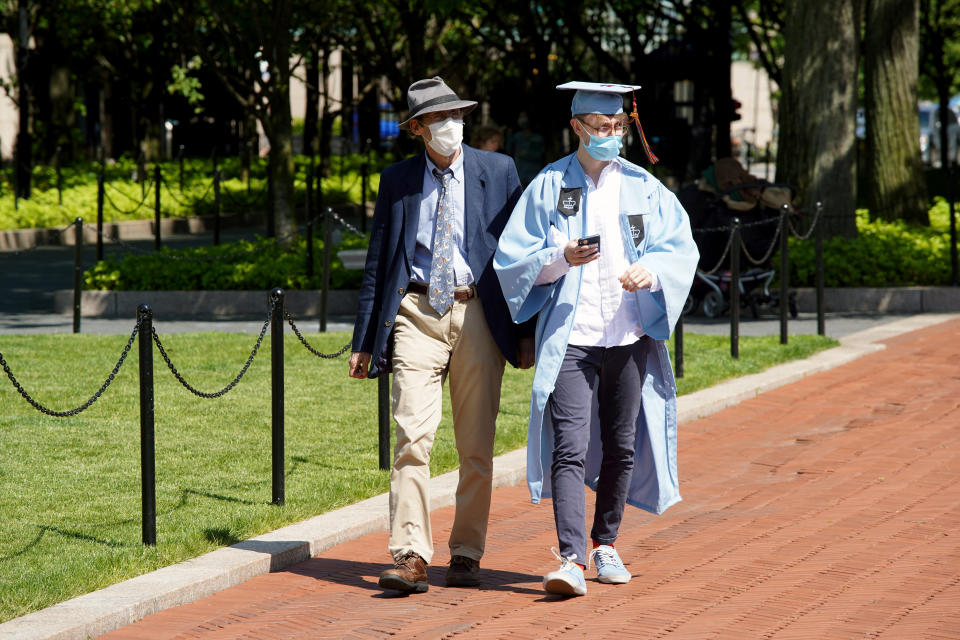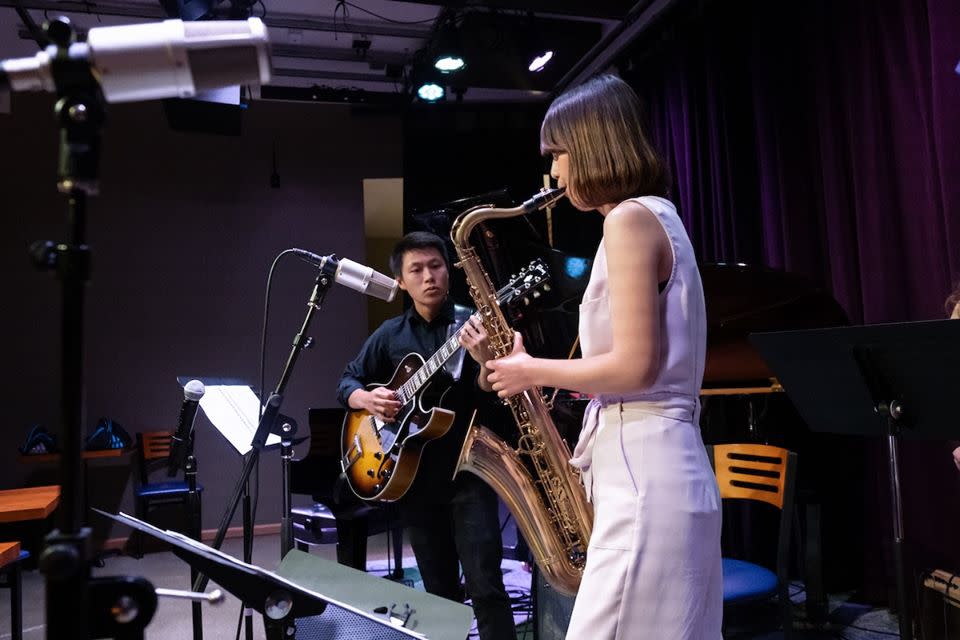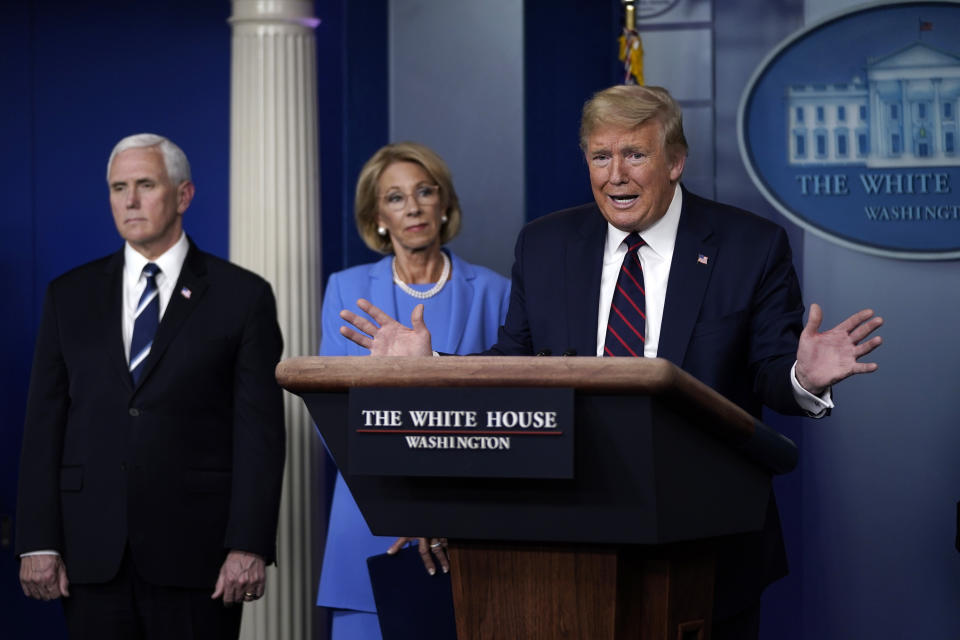'Oh my gosh... I didn't know': Joy, confusion over money allocated for niche U.S. schools amid coronavirus
What do a jazz school, a yeshiva, and a dog training academy have in common?
They were all allocated hundreds of thousands of dollars by the Department of Education (ED) to help them weather the coronavirus pandemic. At least the California Jazz Conservatory, the Derech Ayson Rabbinical, and the Bergin University of Canine Studies thought so.
On Friday, observers noted that the ED seems removed the list of allocations and added the statement: “Revisions are being made in the formula allocation table and methodology for this program.” It’s unclear that means if the schools can no longer receive the money if they apply. The ED did not respond to requests for clarification.
The funds were originally allocated through the Coronavirus Aid, Relief, and Economic Security (CARES) Act, which gave ED the discretion to distribute billions of dollars to buttress higher education against adverse effects of the coronavirus pandemic.
About $350 million of the $14 billion had been earmarked for higher education institutions has been doled out to small colleges, many of which are private, religious, or highly specialized schools. Under the allocation formula that has now disappeared, small schools would receive money first to meet “the requirement to prioritize schools that received less than $500,000” in CARES Act funding.

‘I didn't know about the rest’
The confusion over the latest round of stimulus funding comes after Harvard and Stanford refused money after commentators (including President Trump) said they didn’t need any financial support. An ED official told Yahoo Finance that the money for smaller schools came from a different CARES Act pool than the money initially allocated to large schools like Harvard and Stanford.
“Oh my gosh — that's amazing,” Susan Muscarella, the founding president with the California Jazz Conservatory, told Yahoo Finance after being informed that the school had been allocated $461,433 under Section 18004(a)(3) of the CARES Act. “I know that we received the $38,507 already, for which we were incredibly grateful, but I didn't know about the rest.”
The California Jazz Conservatory has about 50 students in its degree-granting programs and 500 students in its community education Jazzschool.
After closing the school on March 9 to prevent the spread of COVID-19, the disease caused by coronavirus, the school applied for federal funding from the CARES Act. The above-mentioned $38,507 arrived through the Higher Education Emergency Relief Fund, part of the CARES Act created to help students amid disruption of campus operations amid the pandemic.

“Every student received a different amount based on their particular need,” Muscarella told Yahoo Finance, noting that about half of the $38,000 from the first tranche went to students. “And believe me, students were grateful. They were so grateful.”
Muscarella added she was “incredibly grateful” for the larger allocation and would use the extra money “to enable the school to really transcend the effects of the virus.” The school was able to keep all faculty and staff employed and started to design a new online curriculum.
The Derech Ayson Rabbinical, a yeshiva in Far Rockaway, New York, was slated to receive $476,248, according to ED’s original allocations list. The school has about 33 students, according to the College Scorecard, a platform maintained by ED.
The Bergin University of Canine Studies in California is slated to receive $472,850, as first reported by the New York Times. The school’s founder Bonnie Bergin described the money a “godsend,” adding: “I think we are one of the most important educational institutions out there right now.”
Bergin had 52 enrolled students at the start of 2019 and ended the year with 32.

‘The danger .. for colleges who really need the help’
Some experts questioned the value of the allocations to niche schools.
“It’s not normal to give large sums of money to colleges without even notifying them,” James Kvaal, president of the nonprofit Institute for College Access & Success and a former Obama White House official, told Yahoo Finance. “Even during a pandemic, you should require colleges to show that they need the money.”
And for many of the schools, the incoming funds were highly disproportional, which threw the methodology of calculating the allocations into question.
For instance, for at least 81 schools that are slated to get the additional funding from ED, the federal funds represented “at least 50% of their annual revenues,” student loan expert Ben Miller tweeted, adding that for 37 of them, it was “more than a year’s worth.”
Kvaal stressed that given that higher education as an industry is struggling with steep enrollments and budget cuts from states, “the danger here is for colleges who really need the help. They will lose out while some very small colleges get a windfall.”
As of Monday, there is little clarity as to whether the money allocated to smaller schools would be revised or withheld after ED took down the spreadsheet’s link and stated it was revising the formula for allocations. It was also unclear what prompted the move.

‘I don't even have words for that’
More federal dollars could go to colleges across America as the economic implications of the pandemic drag on.
The $3 trillion HEROES Act, recently passed by the House, would allocate more than $37 billion for higher education institutions. (The Senate is largely expected to ignore this version of bill.)
In any case, Kvaal believed that Congress was going to be more careful with any further stimulus given to ED moving forward.
With the CARES Act, “in giving some discretion to the Secretary of Education, rather than sending all of the dollars out through a formula, Congress intended to let her meet the most urgent needs,” he said. “They won’t make that mistake again.”
In any case, the money promised to the niche schools represents a potential lifeline.
“Jazz is really America’s treasured art form and really does not get as much support as it needs. … If we do get this money, it would give us a chance to really make it through it,” Muscarella said. “I would be just incredibly grateful. I mean, I don't even have words for that.”
—
Aarthi is a reporter for Yahoo Finance.
Read more:
· U.S. student loan interest rates plummet amid coronavirus downturn
· Coronavirus and student loans: What borrowers should know
· Student loan startup offers free assistance to borrowers amid the coronavirus pandemic
· Read the latest financial and business news from Yahoo Finance
Follow Yahoo Finance on Twitter, Facebook, Instagram, Flipboard, SmartNews, LinkedIn,YouTube, and reddit.
